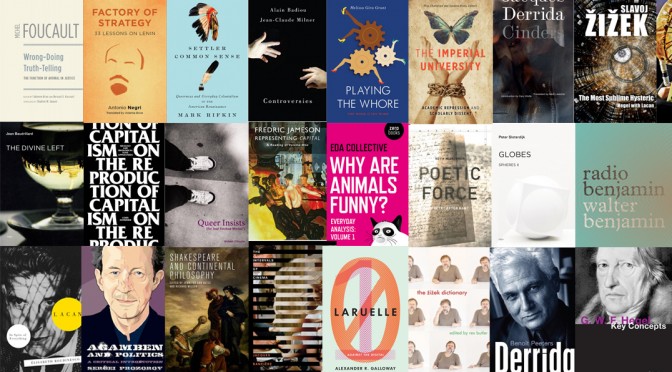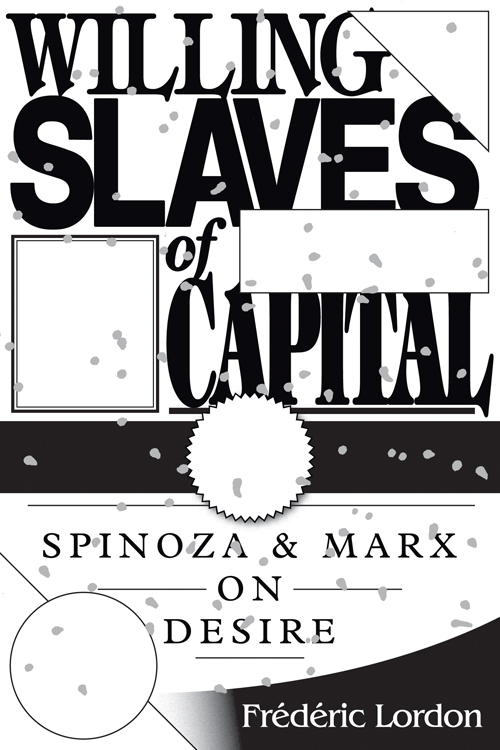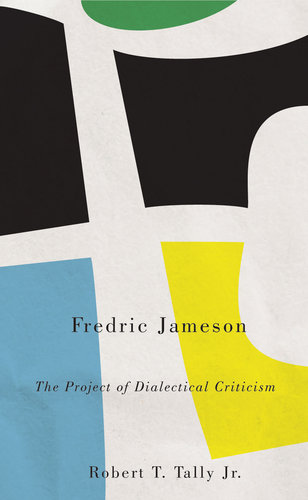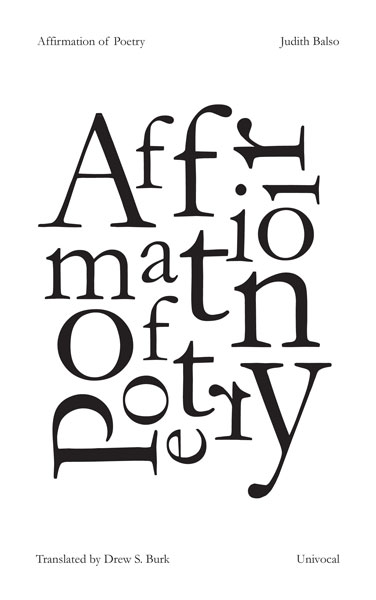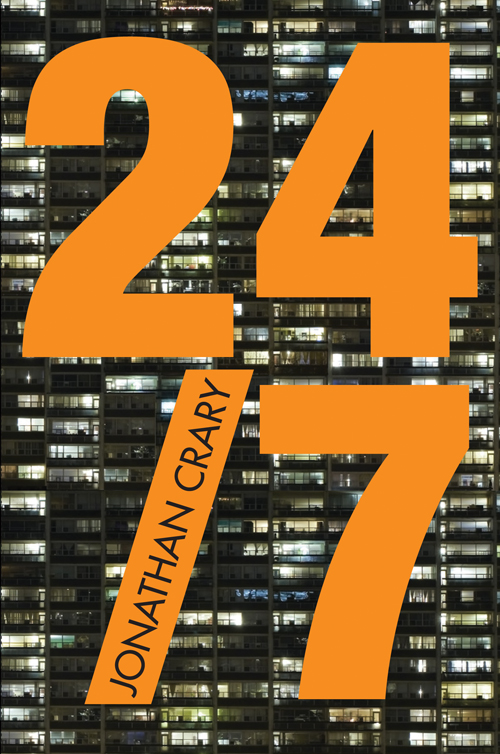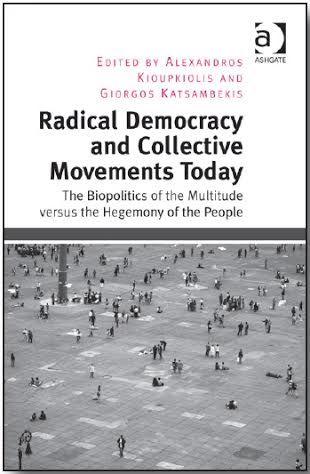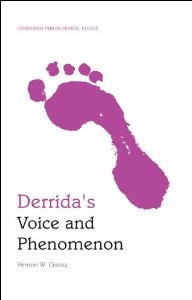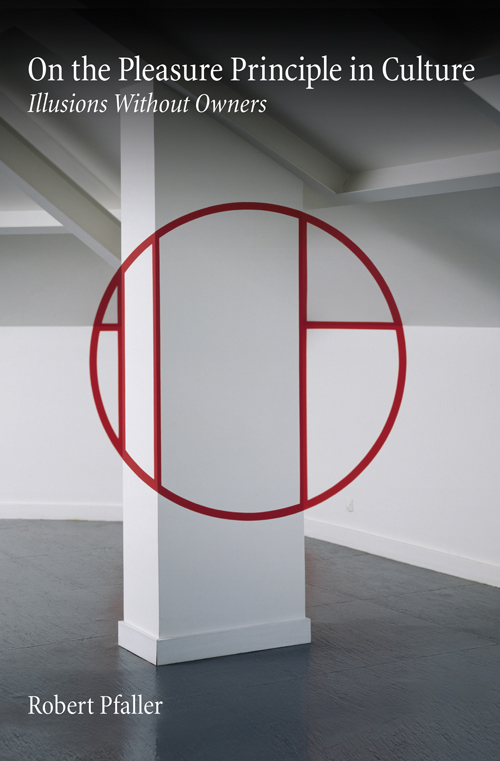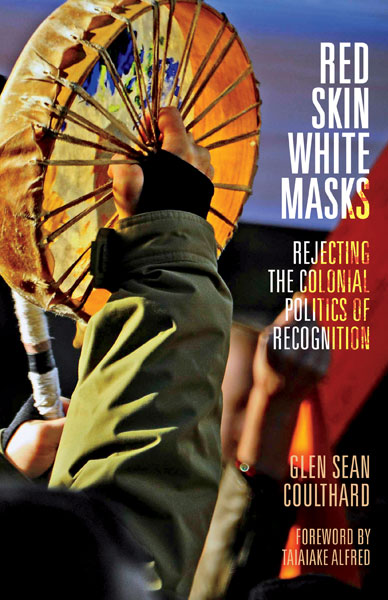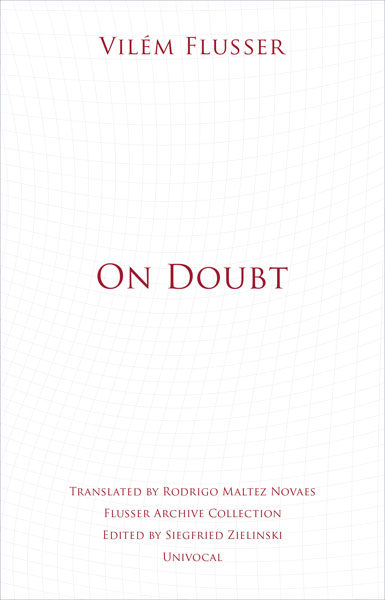#41 Willing Slaves of Capital
By Frederic Lordon
“Why do people work for other people? This seemingly naïve question is more difficult to answer than one might at first imagine, and it lies at the heart of Lordon’s Willing Slaves of Capital.
To complement Marx’s partial answers, especially in the face of the disconcerting spectacle of the engaged, enthusiastic employee, Lordon brings to bear a ‘Spinozist anthropology’ that reveals the fundamental role of affects and passions in the employment relationship, reconceptualizing capitalist exploitation as the capture and remoulding of desire.
A thoroughly materialist reading of Spinoza’s Ethics allows Lordon to debunk notions of individual autonomy and selfdetermination while simultaneously saving the ideas of political freedom and liberation from capitalist exploitation. Willing Slaves of Capital is a bold proposal to rethink capitalism and its transcendence on the basis of the contemporary experience of work.”
Buy it here, or check out this free excerpt.
#42 Fredric Jameson: The Project of Dialectical Criticism
By Robert Tally Jr.
“Fredric Jameson is the most important Marxist critic in the world today. While consistently operating at the cutting edge of literary and cultural studies, Jameson has remained committed to seemingly old-fashioned philosophical discourses, most notably dialectical criticism and utopian thought.
In Fredric Jameson: The Project of Dialectical Criticism, Robert Tally surveys Jameson’s entire oeuvre, from his early studies of Sartre and formal criticism through his engagements with postmodernism and globalisation to his recent readings of Hegel, Marx and the valences of the dialectic.”
Buy it here.
#43 Affirmation of Poetry
By Judith Balso
“In Affirmation of Poetry, Judith Balso defends the significance of poetry as a necessary practice for thinking. In analyzing the affirmation of thought found within the work of such poets as Osip Mandelstam, Wallace Stevens, Alberto Caeiro, and Giacomo Leopardi, Balso reestablishes the importance of poetry’s place as a site of thought. ”
Buy it here.
#44 24/7
By Jonathan Crary
“24/7: Late Capitalism and the Ends of Sleep explores some of the ruinous consequences of the expanding non-stop processes of twenty-first-century capitalism. The marketplace now operates through every hour of the clock, pushing us into constant activity and eroding forms of community and political expression, damaging the fabric of everyday life.
Jonathan Crary examines how this interminable non-time blurs any separation between an intensified, ubiquitous consumerism and emerging strategies of control and surveillance. He describes the ongoing management of individual attentiveness and the impairment of perception within the compulsory routines of contemporary technological culture. At the same time, he shows that human sleep, as a restorative withdrawal that is intrinsically incompatible with 24/7 capitalism, points to other more formidable and collective refusals of world-destroying patterns of growth and accumulation.”
Buy it here.
#45 Radical Democracy and Collective Movements Today
Edited by Alexandros Kioupkiolis and Giorgos Katsambekis
“The ‘Arab spring’, the Spanish indignados, the Greek aganaktismenoi and the Occupy Wall Street movement all share a number of distinctive traits; they made extensive use of social networking and were committed to the direct democratic participation of all as they co-ordinated and conducted their actions. Leaderless and self-organized, they were socially and ideologically heterogeneous, dismissing fixed agendas or ideologies. Still, the assembled multitudes that animated these mobilizations often claimed to speak in the name of ‘the people’, and they aspired to empowered forms of egalitarian self-government in common.
Similar features have marked collective resistances from the Zapatistas and the Seattle protests onwards, giving rise to theoretical and practical debates over the importance of these ideological and political forms. By engaging with the controversy between the autonomous, biopolitical ‘multitude’ of Hardt and Negri and the arguments in favour of the hegemony of ‘the people’ advanced by J. Rancière, E. Laclau, C. Mouffe and S. Žižek the central aim of this book is to discuss these instances of collective mobilization, to probe the innovative practices and ideas they have developed and to debate their potential to reinvigorate democracy whilst seeking something better than ‘disaster capitalism’.”
Buy it here.
#46 Derrida’s Voice and Phenomenom
By Vernon Cisney
“Published in 1967, Voice and Phenomenon marked a crucial turning point in Derrida’s thinking: the culmination of a 15-year-long engagement with the phenomenological tradition. It also introduced the concepts and themes that would become deconstruction.
Voice and Phenomenon is a short book, but it can be an overwhelming text, particularly for inexperienced readers of Derrida’s work. This is the first guide to clearly explain the structure of his argument, step by step.”
Buy it here.
#47 On the Pleasure Principle in Culture
By Robert Pfaller
“In this fascinating work of cultural theory and philosophy, Robert Pfaller explores the hidden cost of our contemporary approach to pleasure, belief and illusion.
Sports, design, eroticism, social intercourse and games—indeed, all those aspects of our culture commonly deemed “pleasurable”—seem to require beliefs that many regard as illusory. But in considering themselves above the self-deceptions of the crowd, those same sceptics are prone to dismissing a majority of the population as naive or misguided. In doing so, they create a false opposition between the ‘simple’ masses and their more enlightened rulers. And this dichotomy then functions as an ideological support for neoliberal government: citizens become irrational victims, to be ruled over by a protective security state. What initially appears to be a universal pleasure principle—the role of “anonymous illusions” in mass culture—in this way becomes a rationale for dismantling democracy.”
Buy it here.
#48 The Far Reaches
By
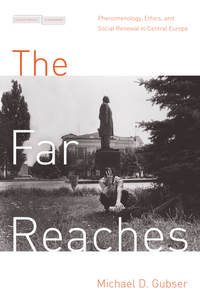 “When future historians chronicle the twentieth century, they will see phenomenology as one of the preeminent social and ethical philosophies of its age. The phenomenological movement not only produced systematic reflection on common moral concerns such as distinguishing right from wrong and explaining the status of values; it also called on philosophy to renew European societies facing crisis, an aim that inspired thinkers in interwar Europe as well as later communist bloc dissidents.
“When future historians chronicle the twentieth century, they will see phenomenology as one of the preeminent social and ethical philosophies of its age. The phenomenological movement not only produced systematic reflection on common moral concerns such as distinguishing right from wrong and explaining the status of values; it also called on philosophy to renew European societies facing crisis, an aim that inspired thinkers in interwar Europe as well as later communist bloc dissidents.
Despite this legacy, phenomenology continues to be largely discounted as esoteric and solipsistic, the last gasp of a Cartesian dream to base knowledge on the isolated rational mind. Intellectual histories tend to cite Husserl’s epistemological influence on philosophies like existentialism and deconstruction without considering his social or ethical imprint. And while a few recent scholars have begun to note phenomenology’s wider ethical resonance, especially in French social thought, its image as stubbornly academic continues to hold sway. The Far Reaches challenges that image by tracing the first history of phenomenological ethics and social thought in Central Europe, from its founders Franz Brentano and Edmund Husserl through its reception in East Central Europe by dissident thinkers such as Jan Pato ka, Karol Wojty a (Pope John Paul II), and Václav Havel.”
Buy it here.
#49 A Brave Man Seven Storeys Tall (Fiction)
By Will Chancellor
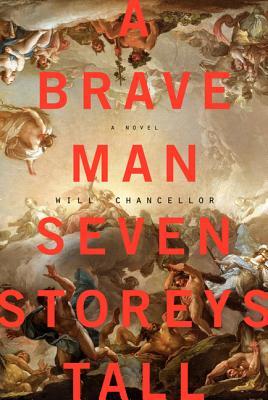
The only fiction on this list:
“Professor Burr has never been the father he wants to be. His son, Owen, captain of the Stanford University water polo team, bound for the Olympics in Athens, is blinded during a match and flees to Berlin without graduating. His disappearance triggers a call to action on the part of Dr. Burr. He dusts off his more speculative theory, Liminalism, to embark on a speaking tour, pushing his theory to its radical extreme—at his own peril and with Jean Baudrillard’s help—in order to send up flares for his son in Greece, Germany, and Iceland. A compulsively readable novel of ideas, action, and intrigue, A Brave Man Seven Storeys Tall offers a persuasive vision of personal agency, art, family, and the narratives we build for ourselves. ”
Buy it here.
#50 Philosophy of Praxis
By Andrew Feenberg
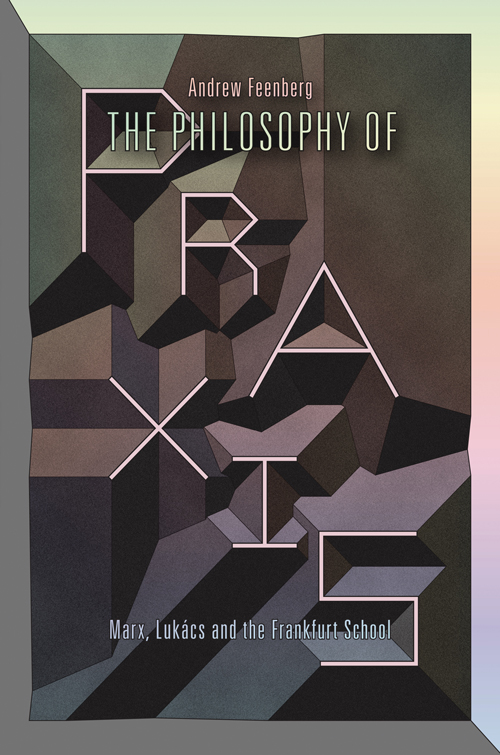
“The early Marx called for the “realization of philosophy” through revolution. Revolution thus became a critical concept for Marxism, a view elaborated in the later praxis perspectives of Lukács and the Frankfurt School. These thinkers argue that fundamental philosophical problems are, in reality, social problems abstractly conceived.
Originally published as Lukács, Marx and the Sources of Critical Theory, The Philosophy of Praxis traces the evolution of this argument in the writings of Marx, Lukács, Adorno and Marcuse. This reinterpretation of the philosophy of praxis shows its continuing relevance to contemporary discussions in Marxist political theory, continental philosophy and science and technology studies.”
Buy it here.
#51 The Politics of Deconstruction
Susanne Ludemann
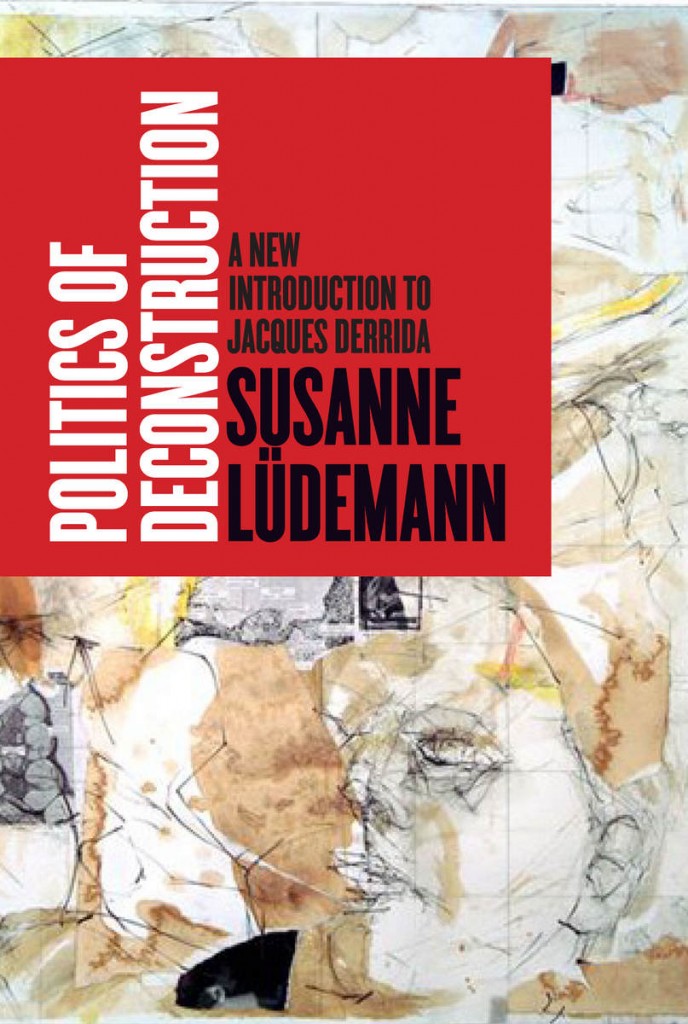
“The book offers a new introduction to Jacques Derrida and to Deconstruction as an important strand of Continental Philosophy. From his early writings on phenomenology and linguistics to his later meditations on war, terrorism, and justice, Jacques Derrida (1930–2004) achieved prominence on an international scale by addressing as many different audiences as he did topics. Yet despite widespread acclamation, his work has never been considered easy. Rendering accessible debates that marked more than four decades of engagement and inquiry, Susanne Lüdemann traces connections between the philosopher’s own texts and those of his many interlocutors, past and present.
Unlike conventional introductions, Politics of Deconstruction offers a number of personal approaches to reading Derrida and invites readers to find their own. Emphasizing the relationship between philosophy and politics, it shows that, with Deconstruction, there is much more at stake than an “academic” discussion, for Derrida’s work deals with all the burning political and intellectual challenges of our time. The author’s own professional experience in both the United States and in Europe, which particularly inform her chapter on Derrida’s reception in the United States, opens a unique perspective on a unique thinker, one that rewards specialists and newcomers alike.”
Buy it here.
#52 The Most Sublime Hysteric
By Slavoj Zizek
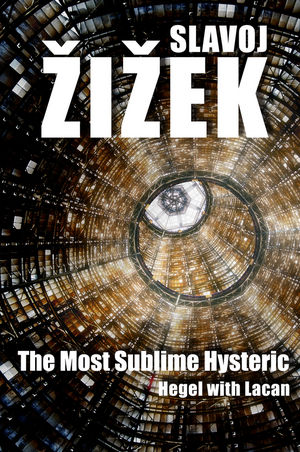
“What do we know about Hegel? What do we know about Marx? What do we know about democracy and totalitarianism? Communism and psychoanalysis? What do we know that isn’t a platitude that we’ve heard a thousand times – or a self-satisfied certainty? Through his brilliant reading of Hegel, Slavoj Zizek – one of the most provocative and widely-read thinkers of our time – upends our traditional understanding, dynamites every cliché and undermines every conviction in order to clear the ground for new ways of answering these questions.
When Lacan described Hegel as the ‘most sublime hysteric’, he was referring to the way that the hysteric asks questions because he experiences his own desire as if it were the Other’s desire. In the dialectical process, the question asked of the Other is resolved through a reflexive turn in which the question begins to function as its own answer. We had made Hegel into the theorist of abstraction and reaction, but by reading Hegel with Lacan, Zizek unveils a Hegel of the concrete and of revolution – his own, and the one to come.
This early and dazzlingly original work by Zizek offers a unique insight into the ideas which have since become hallmarks of his mature thought. It will be of great interest to anyone interested in critical theory, philosophy and contemporary social thought.”
Buy it here.
#53 Red Skin White Masks
By Glen Sean Coulthard
“Glen Sean Coulthard challenges recognition as a method of organizing difference and identity in liberal politics, questioning the assumption that contemporary difference and past histories of destructive colonialism between the state and Indigenous peoples can be reconciled through a process of acknowledgment. He examines an alternative politics, seeking to revalue, reconstruct, and redeploy Indigenous cultural practices based on self-recognition.”
Buy it here.
#54 Against Old Europe: Critical Theory and Alter-Globalization Movements
By Raphael Schlembach
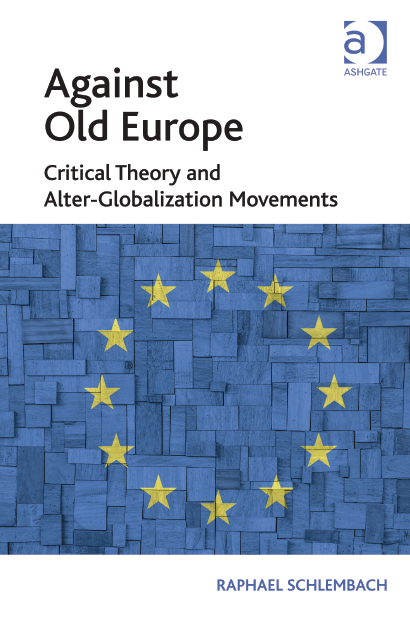 “In the wake of the Iraq war, the term Old Europe was appropriated by politicians, civil society and social movement actors alike to rally in defence of supposedly social and civilized values against the perceived predatory forces of American finance.
“In the wake of the Iraq war, the term Old Europe was appropriated by politicians, civil society and social movement actors alike to rally in defence of supposedly social and civilized values against the perceived predatory forces of American finance.
Against Old Europe sheds light on the social movement politics encapsulated in the protest slogan ‘Fight Old Europe’. Within what is broadly labelled the global justice movement, it explores a particular, radical perspective that warns against the identification with European values by movements resisting neoliberalism. Exploring the work of key theorists critical of globalization, including Habermas, Negri, Holloway, Postone and de Benoist, the book examines critical theory approaches to alter-globalization, illustrated with concrete examples of movements within contemporary Europe. In so doing, it invites readers to explore the charges of nationalism, anti-Americanism and antisemitism brought against parts of the alter-globalization movement.”
Buy it here.
#55 The Thing
By Dylan Trigg
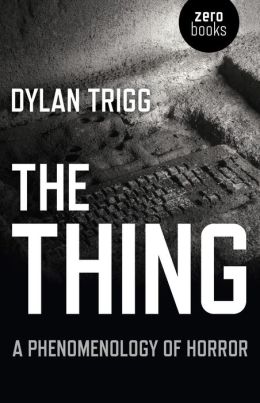
“What is the human body? Both the most familiar and unfamiliar of things, the body is the centre of experience but also the site of a prehistory anterior to any experience. Alien and uncanny, this other side of the body has all too often been overlooked by phenomenology. In confronting this oversight, Dylan Trigg’s The Thing redefines phenomenology as a species of realism, which he terms unhuman phenomenology. Far from being the vehicle of a human voice, this unhuman phenomenology gives expression to the alien materiality at the limit of experience.
By fusing the philosophies of Merleau-Ponty, Husserl, and Levinas with the horrors of John Carpenter, David Cronenberg, and H.P. Lovecraft, Trigg explores the ways in which an unhuman phenomenology positions the body out of time. At once a challenge to traditional notions of phenomenology, The Thing is also a timely rejoinder to contemporary philosophies of realism. The result is nothing less than a rebirth of phenomenology as redefined through the lens of horror.”
Buy it here.
#56 On Doubt
“In On Doubt, Vilém Flusser refines Martin Heidegger’s famous declaration that “language is the dwelling of Being.” For Flusser, “the word is the dwelling of being,” because in fact, in the beginning, there was the word.
On Doubt is a treatise on the human intellect, its relation to language, and the reality-forming discourses that subsequently emerge. For Flusser, the faith that the modern age places in Cartesian doubt plays a role similar to the one that faith in God played in previous eras—a faith that needs to be challenged. Descartes doubts the world through his proposition cogito ergo sum, but leaves doubt itself untouched as indubitable and imperious. His cogito ergo sum may have proved to the Western intellect that thoughts exist, but it did not prove the existence of that which thinks: one can eliminate thinking and yet continue being.”
Buy it here.
#57 Hölderlin’s Hymns: “Germania” and “The Rhine”
By Martin Heidegger

“Martin Heidegger’s 1934–1935 lectures on Friedrich Hölderlin’s hymns “Germania” and “The Rhine” are considered the most significant among Heidegger’s lectures on Hölderlin. Coming at a crucial time in his career, the text illustrates Heidegger’s turn toward language, art, and poetry while reflecting his despair at his failure to revolutionize the German university and his hope for a more profound revolution through the German language, guided by Hölderlin’s poetry. These lectures are important for understanding Heidegger’s changing relation to politics, his turn toward Nietzsche, his thinking about the German language, and his breakthrough to a new kind of poetic thinking. First published in 1980 as volume 39 of Heidegger’s Complete Works, this graceful and rigorous English-language translation will be widely discussed in continental philosophy and literary theory.”
Buy it here.
#58 Comradely Greetings
By Slavoj Zizek and Nadya Tolokonnikova
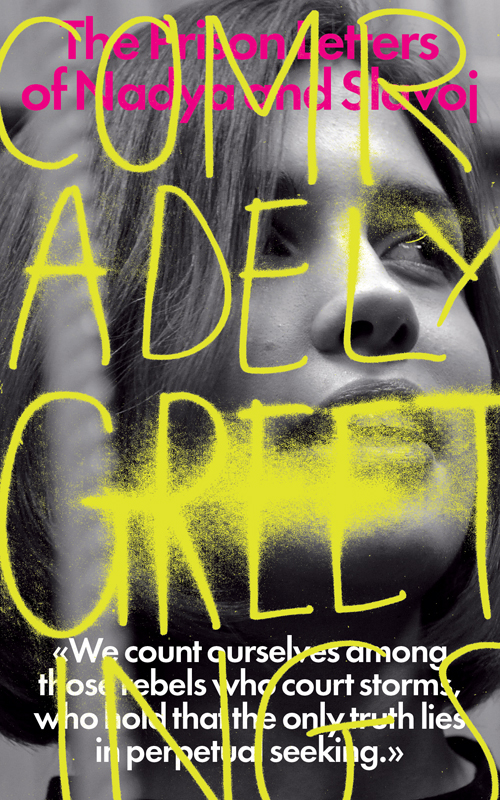
“In an extraordinary exchange of letters, Nadezhda Tolokonnikova, imprisoned for taking part in Pussy Riot’s anti-Putin performance, and Slovenian philosopher Slavoj Žižek discuss artistic subversion, political activism, and the future of democracy via the ideas of Hegel, Deleuze, Nietzsche, and even Laurie Anderson.
Two radicals, one in a Russian forced labor camp, the other writing to her from far outside its walls, show passionately – across linguistic and generational divides – that “there is still a common cause worth fighting for.” Touching, erudite, and worldly, their correspondence unfolds with poetic urgency.”
Buy it here, or read the Critical-Theory review.
#59 Poetic Force: Poetry After Kant
By Kevin McLaughlin
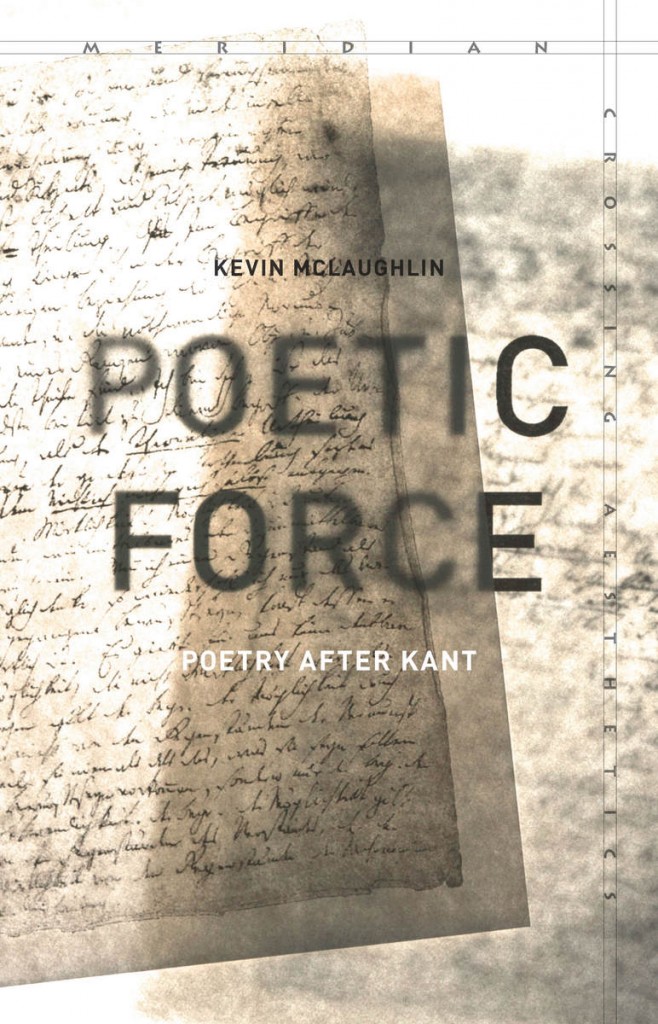
“This book argues that the theory of force elaborated in Immanuel Kant’s aesthetics (and in particular, his theorization of the dynamic sublime) is of decisive importance to poetry in the nineteenth century and to the connection between poetry and philosophy over the last two centuries. Inspired by his deep engagement with the critical theory of Walter Benjamin, who especially developed this Kantian strain of thinking, Kevin McLaughlin uses this theory of force to illuminate the work of three of the most influential nineteenth-century writers in their respective national traditions: Friedrich Hölderlin, Charles Baudelaire, and Matthew Arnold. The result is a fine elucidation of Kantian theory and a fresh account of poetic language and its aesthetic, ethical, and political possibilities.”
Buy it here.
#60 Shakespeare and Continental Philosophy
Edited by Jennifer Bates and Richard Wilson
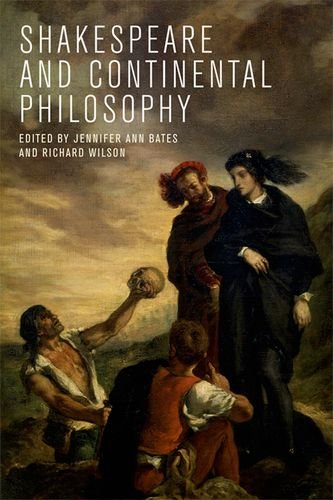
“This collection of 15 essays by celebrated authors in Shakespeare studies and in continental philosophy develops different aspects of the interface between continental thinking and Shakespeare’s plays. The authors draw from current continental philosophy (e.g. Lacan, Foucault, Derrida) as well as from the 19th century continental tradition (e.g. Hegel, Kierkegaard) and from the early roots of continental tradition (e.g. Aristotle, Ibn Sina). The chapters address the span of the tragedies, comedies and history plays in the light of thinkers as diverse as Aristotle, Ibn Sina and Jean-Luc Marion, Hegel, Kierkegaard, Schopenhauer, Schmitt, Arendt, Lacan, Levinas, Foucault and Derrida.”
Buy it here.

